Review
Research Article
Issue Reviewers


I’m editor of the book “China’s Globalisation and the New World Order” published by Springer in 2025. I have over 20 years of academic experience at undergraduate, postgraduate and PhD levels. Besides teaching and research supervision, I remained the Head of Department, Humanities and Social Sciences, Coordinator Quality Assurance, and Head of IR Program at Bahria University. I was the In-charge Students Affairs at the Department of Political Science, Government Postgraduate College, No.1. Abbottabad. I am HEC approved supervisor and the member of HEC National Curriculum Review Committee on International Relations. I am a member of the Board of Governors for Area Study Center, Quaid-i-Azam University, Islamabad. I’m the core member of the Working Group on Countering Violent Extremism under the Ministry of Information and Broadcasting. I’m a member of the advisory board of two research journals and reviewer of several international and national journals. I’m also core member and Secretary of Pakistan Society for International Studies. I’m a research fellow at INTI International University, Malaysia since January 2025. I have served as international observer for Uzbekistan presidential elections in 2021.
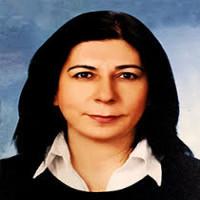
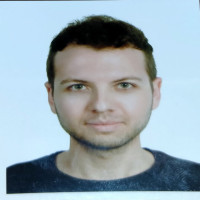
I graduated from Eskisehir Osmangazi University with 3.57/4.00 GPA, which qualifies me for the top 1% in the field of International Relations. Between the years 2015 and 2019 I had the opportunity to improve myself on many subjects both in and out of the field by participating in various social activities. In the context of the Model United Nations event held in our university in 2017, I represented the country of Finland in the United Nations Development Program Committee and actively participated in the discussions on global problems and the resolution of these problems. In the Model United Nations event organized by Bilkent University in January 2018, I represented Spain in the Committee for Social and Economic Relations Development and learned about the current situation of Spain and tried to find solutions to the problems that have been experienced around the world. I had the opportunity to obtain information from primary sources about the relations between Turkey and the Kingdom of Denmark with visiting the Ambassador of Denmark, Mr. Svend Olling. At the Turkey-Switzerland Relations Conference held at Eskişehir Osmangazi University, with the participation of Swiss Political Attaché Julien Briguet, I had the opportunity to learn about the developments in many fields such as economy, politics and culture between the two countries, and by being his guide, I had the opportunity to learn about diplomacy and political science and also I benefited from his experience. In June and July 2018, I went to Romania to voluntarily teach English to children aged 7-15 years and the United Nations 17 Sustainable Development Goals as part of the social responsibility project of the AEISEC non-governmental organization. I did not start an academic career in Romania, however, thanks to the gains I have made here; I have both created a deep conceptual analysis of Romania-Turkey relations and actively participated in the realization of the UN Missions. On March 4, 2019, I acted as a reporter at the meeting held in Eskişehir on International Women's Day with the slogan "From Beijing to the Present, From Today to the Future" and made a detailed presentation on the related issue and included the solution of the problems. This interest has peaked when I have been nominated for a scholarship provided by the Ministry of Foreign Affairs of Taiwan to study Chinese for the duration of six months between September 2019 and February 2020. By participating in the Internship/Training Program organized by the Foreign Policy Institute,

Lisans derecesini 2010 yılında Hacettepe Üniversitesi Sosyoloji bölümünden aldı. Yüksek lisansını Hacettepe Üniversitesi Sosyal Bilimler Enstitüsü Sosyoloji Anabilim dalında Doç. Dr. Abdulkerim Sönmez danışmanlığında hazırladığı"Toplumsal muhafazakârlığın aile, evlilik, din ve siyaset alanlarındaki tezahürleri" başlıklı teziyle 2016 yılında tamamlayan Kurtoğlu 2017 yılında Karamanoğlu Mehmetbey Üniversitesi Sosyoloji bölümünde araştırma görevlisi olarak çalışmaya başladı. 2023 yılında Hacettepe Üniversitesi Sosyal Bilimler Enstitüsü Sosyoloji Anabilim dalında Doç. Dr. Abdulkerim Sönmez danışmanlığında hazırladığı "Öznelerin deneyimleri üzerinden günlük hayat: Eleştirel bir yeniden kavramsallaştırma" başlıklı teziyle doktor ünvanı almaya hak kazanan Kurtoğlu 2024 yılından bu yana Karamanoğlu Mehmetbey Üniversitesi Sosyoloji bölümünde Dr. Öğr. Üyesi olarak akademik çalışmalarına devam etmektedir.


Bilkent Üniversitesi İktisadi, İdari ve Sosyal Bilimler Fakültesi Uluslararası İlişkiler Bölümü’ndeki lisans öğrenimini 1998’de tamamladıktan sonra, 1999’da, aynı üniversitenin Sosyal Bilimler Enstitüsü’nün Uluslararası İlişkiler Ana Bilim Dalı’ndan, The Contribution of The International Court of Justice to The Continental Shelf Disputes in The Mediterranean Sea başlıklı tezi ile Yüksek Lisans, Marmara Üniversitesi, Sosyal Bilimler Enstitüsü, Siyaset Bilimi ve Uluslararası İlişkiler Anabilim Dalı’ndan, 2011 yılında, Bir Göç Sisteminin Anatomisi: Türkiye-Rusya Örneği başlıklı tezi ile Doktora derecelerini almıştır.
Çalışmaları, uluslararası göç ve göç politikaları alanlarında yoğunlaşmıştır.
Halen, Doktor Öğretim Üyesi olarak, İstanbul Ticaret Üniversitesi, İnsan ve Toplum Bilimleri Fakültesi, Siyaset Bilimi ve Uluslararası İlişkiler Bölümü’nde çalışmaktadır.

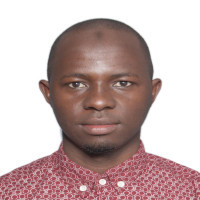
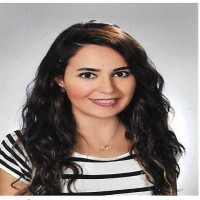
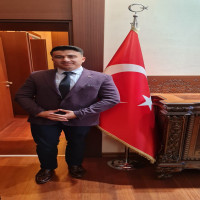
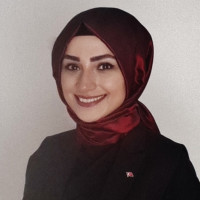





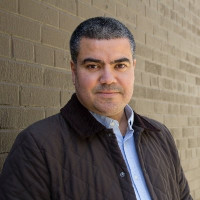
Anadolu Üniversitesi Sosyoloji Bölümü’nde öğretim üyesidir. Yemek sosyolojisi, gıda ve beslenme sosyolojisi, gıda çalışmaları, tüketim sosyolojisi, gastronomi, yemek ve kültür temel ilgi alanlarıdır. Orta sınıf ve dışarıda yemek, fast food, kahve kültürü ve tüketimi, beslenme ve toplumsal eşitsizlikler, beslenmenin sosyolojik boyutları üzerine makaleleri, “Beslencenin Sosyolojisi” başlığı ile bir kitabı bulunmaktadır. Son dönemde yoğunlaştığı konular arasında afet sonrası sahra mutfakları ve kırsal gıda güvencesizliği yer almaktadır.
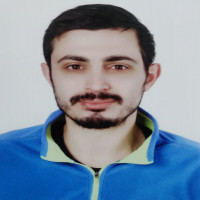
Dr Ferhat Cagri Aras is a Karadeniz Technical University Lecturer in International Relations in the faculty of economics and administrative sciences. His research focuses on South Asian development policies and the unmanned defence industry. He is particularly interested in Eurasian energy security and regional development agencies. Recently, his work is focused on regional policies and security strategies of Central Asian Countries with India. However, Dr Ferhat Çağrı Aras also continues field studies and case studies for the regional development programs of South Asia and the defence industry in Turkey.
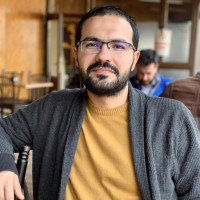
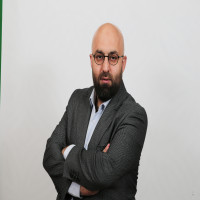
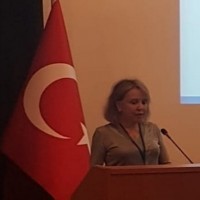
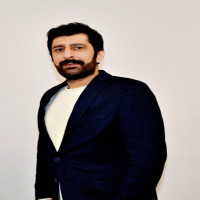
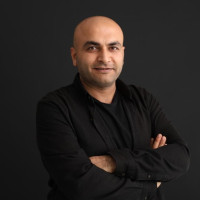
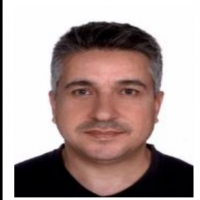
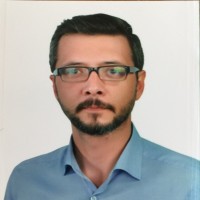


İstanbul Üniversitesi Tarih bölümünde lisans, Beykent Üniversitesi Uluslararası İlişkiler bölümünde yüksek lisans eğitimlerini tamamladı. 2023 yılında Marmara Üniversitesi, Ortadoğu Enstitüsü Ortadoğu Siyasi Tarihi ve Uluslararası İlişkileri bölümünde "Mısır Dış Politikasında Eksen Değişimi ve ABD Hegemonyası" isimli uluslararası ilişkiler tezini tamaladı ve doktor ünvanı aldı. İlgi alanları: ABD Dış Politikası, Neogramşiyan kuram, Ortadoğu ve Mısır siyaseti, Türk Dış Politikası ve Türkiye'de siyasal yaşamdır.

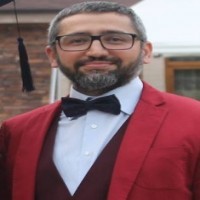
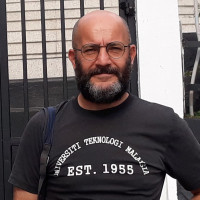

 Web
Web
Mehmet Özay is currently a full time lecturer and researcher in International Institute of Advanced Islamic Thought and Civilization at International Islamic University of Malaysia (ISTAC-IIUM). Between 2007-2010, Özay became a visiting lecturer in Education Faculty and Post-graduate studies at Islamic State University of Ar-Raniry and taught Sociology and Anthropology in the department of Social Sciences and Politics (SOS-POL) at Syah Kuala University (Unsyiah) and Muhammadiyah University in Banda Aceh, Indonesia. He worked as a researcher and lecturer at the Faculty of Education, the University Technology Malaysia (UTM), Skudai, Johor Bahru between 2010-2013. Between post graduate lecture works he was awarded research grants on Colonial Education; Malay Language and Nationalism; and Traditional Islamic Education in Malay World; Aceh History and Sociology, by Research Management Center at UTM. His further career endevour was at journalism field leading socio-political coverage of the Malay World under Turkish national media, Anadolu Agency (AA) and Turkish Radio and Television (TRT), before joining Ibn Haldun University in İstanbul from 2017 to 2021. He has written almost a dosen of books and more than 20 book chapters and edit books written in Malay, English and Turkish languages. His expertise is highly interdisciplinary in the field of socio-politics, history, and religio-anthropological field in Indonesia, Malaysia, Myanmar, India and other Asia-Pacific regions. The academic articles as products of research activities during all these years in Indonesia and Malaysia were presented at various international conferences and published in Turkish, English languages in international journals.
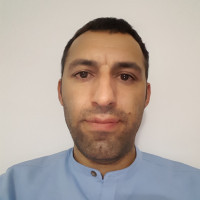

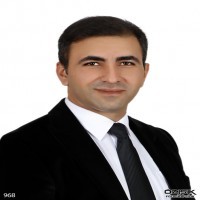


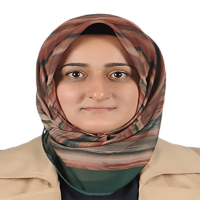



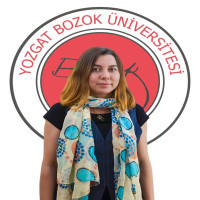
UMUT UZER is an Associate Professor at the Department of Sociology at Istanbul Technical University. He is the author of two books, namely An Intellectual History of Turkish Nationalism (2016) and Identity and Turkish Foreign Policy (2011) and has published “Conservative Narrative: Contemporary Neo-Ottomanist Approaches in Turkish Politics,” Middle East Critique 29 (3) (2020), as well as other articles on Palestine and Türkiye, Israeli-Turkish relations, Turkish nationalism and neo-Ottomanism in Middle East Policy, Israel Studies Review, Israel Affairs, Turkish Studies, Journalism, Journal of the Middle East and Africa and Journal of Muslim Minority Affairs.
Dr. Uzer was a postdoctoral fellow at Harvard University and has taught at Smith College, University of Utah and Boğaziçi University. For his doctoral studies, he attended University of Virginia, where he wrote his Ph.D. dissertation with William Quandt.
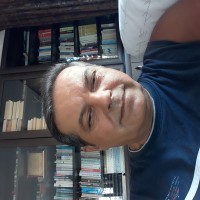
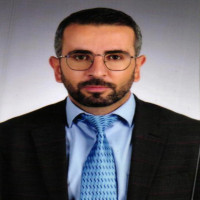
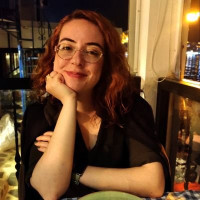
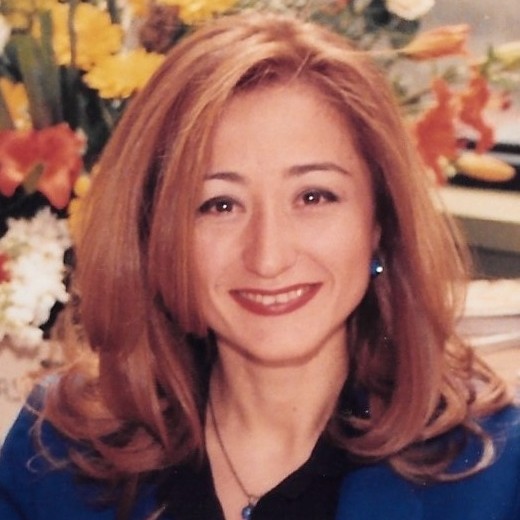
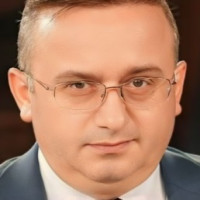
Prof. Dr. Ömer KUL
1973 yılında Trabzon’un Arsin ilçesinde dünyaya geldi. İlk ve orta öğrenimini Trabzon’da, lise öğrenimini Bursa’da tamamladı. 1993 yılında girdiği Erzurum Atatürk Üniversitesi Fen-Edebiyat Fakültesi Tarih Bölümü’nden 1997 yılında mezun oldu. Aynı yıl Yüzüncü Yıl Üniversitesi Sosyal Bilimler Enstitüsü Tarih Anabilim Dalı’nda yüksek lisans yapmaya hak kazandı. 2000 yılında hazırlamış olduğu “15-16. Asırlarda Köprülü / Tito-Vélés Kazası” adlı çalışmayla yüksek lisansını tamamladı. 2000 yılında Manisa Celal Bayar Üniversitesi Fen-Edebiyat Fakültesi Tarih Bölümü Genel Türk Tarihi Anabilim Dalı’na Arş. Gör. olarak girmeye hak kazandı. 2003 yılında İstanbul Üniversitesi’ne doktora yapmak üzere YÖK’ün 35. maddesi uyarınca görevlendirme ile gitti. 2009 yılında tamamlamış olduğu “Osman Batur ve Doğu Türkistan Millî Mücadele Tarihi (1911-1955)” adlı çalışma ile doktor unvanını aldı. Halen İstanbul Üniversitesi Türkiyat Araştırmaları Enstitüsü Türk Tarihi Anabilim Dalı Öğretim Üyesi olarak görev yapmaktadır.
Çalışmaları daha ziyade, Doğu Türkistan ve Türk Dünyası üzerine olup birçok televizyon ve radyo programı, editörlük çalışması yanında ulusal ve uluslararası bildiri, makale, konferans ve panelleri bulunmaktadır. Ömer KUL'un yayınlanmış çalışmaları ise şunlardır:
1- Muhteşem Süleyman’ın I. Viyana Kuşatması, BKY, İstanbul 2008.
2- Şu Pontus Dedikleri, Togan Yay., İstanbul 2008.
3- Esir Doğu Türkistan İçin-1 İsa Yusuf Alptekin’in Millî Mücadele Hatıraları, Berikan Yay., Ankara 2010.
4- Esir Doğu Türkistan İçin-2 İsa Yusuf Alptekin’in Millî Mücadele Hatıraları, Berikan Yay., Ankara 2008.
5- Baturlar: Doğu Türkistan Millî Mücadele Tarihi (1930-1949), Berikan Yay., Ankara 2009.
6- On Yıla Sığan Efsanevi Ömür: Osman Batur Han, Doğu Türkistan Göçmenler Derneği Yayını, İstanbul 2011.
7- 100 Soruda Doğu Türkistan, Rumuz Yay., İstanbul 2017.
8- Altay Kartalı Osman Batur Han, Rumuz Yay., İstanbul 2019.
9- Çin'de İnsan Hakları ve Hak İhlâlleri, Doğu Kütüphanesi Yay., İstanbul 2022.
10- Bir Davanın Hafızası: Hariçte Doğu Türkistan Davası ve Erkin Alptekin, Doğu Kütüphanesi Yay., İstanbul 2023.


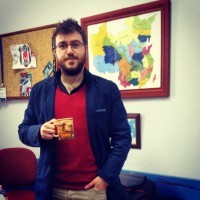
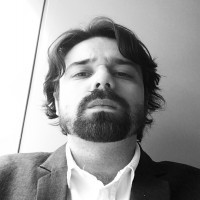
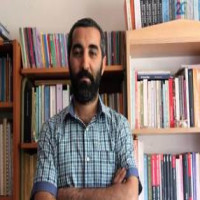
Aim & Scope
Publication Content
Imgelem Journal is an international peer-reviewed academic journal published twice a year (July-December) by the BILGITOY Association. (Article submission dates: For the July issue, January 1st - May 30th; For the December issue, August 1st - October 31st). Article submissions outside of these dates will not be accepted. Submissions arriving after the deadline should apply for the next issue within the valid dates. Imgelem Journal includes original scientific publications. All published articles, except for editorial works, are subjected to double-blind peer review process.
Aim and Scope
The aim of the journal is to contribute to science by publishing high-quality studies of scientific significance. Written from a sociological perspective, original research articles, reviews, theoretical articles, conference (bilgitoy) evaluations, and book reviews are published from all fields of social sciences; if this condition is not met, only original research articles written in the fields of Sociology, Political Science, and International Relations are accepted. Imgelem Journal is an academic publication aiming to conduct scientific and academic publishing within defined boundaries, being independent, double-blind peer-reviewed, open access, and online. Articles submitted for publication must contain original data that has not been previously published or submitted elsewhere for publication. Except for research outputs produced by a group, submitted articles can have a maximum of three authors. Manuscripts deemed suitable according to Imgelem submission rules and journal scope are sent to at least two expert reviewers for scientific evaluation. The Imgelem Editorial Board members deliberating on suitability then consider the reviewers' comments for each submission. The final decision for all submitted manuscripts rests with the Chief Editor. The Publication Board of Imgelem Journal commits to adhering to the criteria the Committee on Publication Ethics (COPE).
Subject Category:
Social Sciences: Sociology, all sub-disciplines of Sociology, Political Science, International Relations
Keywords: Sociology; Family Sociology, Military Sociology, Body Sociology, Knowledge Sociology, Labor Sociology, Sociology of Religion, Literary Sociology, Education Sociology, Economic Sociology, Ethnic Sociology, Development Sociology, Youth Sociology, Sociology of Underdevelopment, Migration Sociology, Legal Sociology, Communication Sociology, Urban Sociology, Rural Sociology, Small Group Sociology, Cultural Sociology, Occupational Sociology, Sociology of Modernity, Music Sociology, Health Sociology, Art Sociology, Industrial Sociology, Leisure Sociology, Political Science, Political Sociology, Sports Sociology, Crime Sociology, Historical Sociology, Gender Sociology, International Relations, Food Sociology.
Publication Language
Full Text Publication Language:
• Primary Language: Turkish
• Secondary Language: English
• Tertiary Language: Uzbek
• Quaternary Language: Russian Content Written in Turkish, English, and Latin or Cyrillic Alphabet:
• Article Title: Turkish & English
• Author Name: Turkish or English (in Latin Alphabet)
• Author Affiliation: Turkish or English (in Latin Alphabet)
• Keywords: Turkish & English
• References: Turkish, English, Uzbek, or Russian (in Latin or Cyrillic Alphabet)
Full Text: Turkish, English, Uzbek, or Russian (in Latin or Cyrillic Alphabet)
Article Submissions
Submitted articles must conform to the aim and scope of the journal. Original, unpublished, and not under consideration for review elsewhere, each article approved by all authors for content and submission will be considered for evaluation.
Target Audience
The target audience includes professionals, experts, academics, researchers, as well as undergraduate, graduate, and doctoral students interested in all fields of Social Sciences. It aims to contribute to the widespread adoption of continuous professional development and research culture.
Originality of Articles
Imgelem does not accept previously published works elsewhere. However, occasionally, articles published in another language may be considered for review if they have been revised and improved. Imgelem Journal does not publish translated articles.
Author Guidelines
Article Preparation
Language: Turkish, English, Uzbek, and Russian
Types of Articles: Research Article, Review Article, Theoretical Article.
Article Format:
1. Font: Times New Roman 12-point font style should be used for the text. Line spacing should be set to 1.5 lines with paragraph spacing options set to 6 points before and after paragraphs.
2. Paragraph Format: Paragraphs should be justified. The first paragraph under each heading should be left-aligned without indentation. However, the first line of subsequent paragraphs under the same heading should have a 1.25 indentation.
3. Word Limit: Articles should not exceed 10,000 words, including all notes and references.
4. Headings: The title of the article should not exceed 16 words, each word should be capitalized, written in black (bold) and 16-point font and centered. The English title should be written in black (bold) with the initial letter of each word capitalized, but in 10-point font and centered. Subheadings, excluding INTRODUCTION, CONCLUSION, and REFERENCES, should have only the first letter capitalized, with the rest in lowercase, written in black (bold) and 12-point font size. Additionally, no heading should be numbered using digits.
5. Abstract: The Abstract and Özet should be prepared using 10-point font size, single line spacing, and Times New Roman font. The Özet should have between 100-250 words, should not contain citations, and should be in a single paragraph.
6. Extended Abstract: Authors are required to include an extended English abstract, which should consist of at least 1000 words, equivalent to 10% of the length of the Turkish article. This text should be located below the "CONCLUSION" and above the "REFERENCES".
7. Keywords: Should consist of 5-8 words. Keywords should be provided with each word capitalized. A full stop should be placed after the last keyword.
8. Tables-Figures: The text and numbers within tables should be set in Times New Roman font size 10. The title of tables, figures, and graphs should be provided above the table, and the source should be given below the table. The title should be in bold format (Table: 1. Figure: 1. Diagram: 1.).
9. Quotations: When providing block quotations within the text, they should be written in 11-point font size, with 1.15 line spacing, justified, and with a 1.25-inch indentation from both the left and right sides. Quotations should begin and end with quotation marks, and punctuation should be placed after the closing quotation mark.
10. Footnotes: In-text citation style is preferred over the use of footnotes and endnotes. Therefore, footnotes should be used sparingly. Footnotes can be used only when absolutely necessary for explanatory notes, in 10-point font size, using Times New Roman font, indicated with an asterisk or number.
11. Author Name(s) and Affiliation(s): The author's name should be aligned to the right below the title of the article. The surname of the author should be written in capital letters. The author's title, affiliation, email address, and ORCID number should be provided in the footnote. The initial submission file should not contain any author identification or any information that would disclose the identity of the author(s). Authors should add their identification details in the revised version after the evaluation process is completed.
Visual Format: A4 Portrait, Margins (Normal) (2.5 cm on all sides [right-left-top-bottom])
Reference Style: Imgelem Journal follows the APA 6 system. For matters not found in the style guide, refer to APA 6 version. URL: http://www.apa.org
Authorship Change: Authorship changes are only processed before acceptance of the article. Authors should carefully review and confirm the list and order of authors before submitting their articles, providing the final author list during the original submission
SPELLING RULES:
1. Single Author, Single Work
Reference Example: (Alptekin, 2013).
Page Numbered: (Alptekin, 2013: 85)
2. Citation Example from a Secondary Source
(Alptekin, 2013 as cited in Karyelioğlu, 2016: 20).
3. Reference Example for a Single-Author Book
Aydın, M. (2017). Sociology of Change. Istanbul: Açılım
4. Reference Example for a Two-Author Book
Alptekin, M. Y., & Karyelioğlu, S. (2016). Construction Business in Trabzon: Social and Economic Aspects. Trabzon: Karadeniz Technical University Press.
Citation to the same book: (Alptekin & Karyelioğlu, 2016: 139).
5.Reference Example for a Three-Author Book
Alptekin, M. Y., Karyelioğlu, S., & Fidan, S. (2019). Patriotism in Theory and Practice: Local and National Dimensions - A Study of the Eastern Black Sea Region Centered on Trabzon. Ankara: Gece Akademi.
Citation to the same book: (Alptekin et al., 2019: 52).
6. Reference Example for a Book with More Than Three Authors
Büyüköztürk, Ş., Kılıç-Çakmak, E., Akgün, Ö. E., et al. (2017). Research Methods in Science. Ankara: Pegem.
Citation to the same book: (Büyüköztürk et al., 2017: 13).
7. Reference Example for a Translated Book
Giddens, A. (2012). Sociology. (Trans. C. Güzel). Istanbul: Kırmızı
8. Formatting of a Single Author Article in the References
Alptekin, M. Y. (2013). Geographer Approach in Sociology and Ecological Interpretation of Social Character in Trabzon, Journal of Black Sea Studies, (15), 77-98.
Note: As the number of authors increases in the article, the rules in the book citation examples are applied in the same way
9. Articles in Electronic Newspapers, Magazines, or Websites with Identified Authors
Gallagher, J. (2020, April 2). Coronavirus: What Are the Effects of Covid-19 on the Human Body? Retrieved December 17, 2021, from https://www.bbc.com/turkce/haberler-dunya-51910851.
Citation to the same article: (Gallagher, 2020).
10. For articles in digital newspapers, magazines, and websites with unknown authors:
URL-1: "Coronavirus Doesn't Infect Turks". (2020, March 5). https://www.yenicaggazetesi.com.tr/oytun-erbas-corona-virus-turklere-bulasmiyor-270766h.htm (Accessed: December 17, 2021).
In-text citation to the same source: ("Coronavirus Doesn't Infect Turks," 2020).
Note: When citing a page from a website of an organization without individual authors, the name of the organization is used as the author.
Example: Ministry of Interior. (2020, December 1). Circulars on New Restrictions and Measures within the Scope of the Fight Against Coronavirus. https://www.icisleri.gov.tr/en/circulars-on-new-restrictions-and-measures-within-the-scope-of-the-fight-against-coronavirus (Accessed: December 17, 2021). Citation to the same website: (Ministry of Interior, 2020).
11. For Press News and Texts with Unknown Authors
Diyanet Gazette, "Patriotism is a Matter of Faith: Those Who Fought in Gallipoli Fulfilled the Command of the Quran," August 30, 1971.
In-text citation to the same source: (Patriotism is Faith, 1971).
12. For Press News and Texts with Known Authors
Azokur, M. (1971, August 30). Patriotism is Faith: Those Who Fought in Çanakkale Fulfilled the Command of the Quran. Diyanet Gazetesi.
In-text citation to the same source: (Azokur, 1971)
13. Reference Example for an Edited Book
Usta, V. (Ed.). (2015). Şalpazarı History-Culture-Human. Trabzon: Serander Yayınları.
14. Reference Example for a Chapter in an Edited Book
Alptekin, M. Y. (2017). Ethno-Demography of Şalpazarı from 1835 to the Present. In V.
Usta (Ed.), Şalpazarı History-Culture-Human (pp. 139-226). Trabzon: Serander Yayınları.
In-text citation to the same chapter: (Alptekin, 2017: 216).
15. Reference Example for an Edited Book
Alptekin, M. Y. (Ed.). (2020). Society and Culture in Eastern Black Sea. Trabzon: Serander Yayınları.
16. Reference Example for a Chapter in an Edited Book
Köksal, S. (2020). South Turkmen in Trabzon. In M. Y. Alptekin (Ed.), Society and Culture in Eastern Black Sea (pp. 9-24). Trabzon: Serander Yayınları.
In-text citation to the same chapter: (Köksal, 2020: 9).
17. Reference Example for a Thesis
Alptekin, M. Y. (2000). Turkish Interpretation of Islam (Turkish Islam). Unpublished Master's Thesis, Istanbul University- Institute of Social Sciences.
In-text citation to the same thesis: (Alptekin, 2000).
18. Reference Example for an Encyclopedia
Köprülü, M. F. (1972). Ahmed Yesevi. İslam Encyclopedia (Vol. 1, pp. 750-788). Ankara: Ministry of National Education.
In-text citation to the same encyclopedia entry: (Köprülü, 1972: 780).
19. Reference Example for a Conference Paper
Alptekin, M. Y. (2017). Conservative Tourism: Tourism Activities and Social Interaction in Trabzon/Uzungöl (pp. 120-150). In Euroasian Conference on Language & Social Science Proceedings. Antalya: www.eclss.org
In-text citation to the same paper: (Alptekin, 2017: 145).
20. Reference Example for Parliamentary Records
Grand National Assembly of Turkey (GNAT), Proceedings Record, Vol. 8, Vol. 13, 4th Session, November 10, 1948.
In-text citation to the same record: (GNAT PR 1948, November 10).
21. Twitter Profile Reference Example
Koca, F. [@drfahrettinkoca]. (n.d.). Tweets [Twitter profile]. Twitter. https://twitter.com/drfahrettinkoca (Accessed: March 25, 2022). In-text citation to the same source: (Koca, n.d.)
22.Twitter Tweet Kaynakça Örneği
Koca, F. [@drfahrettinkoca]. (2022, 25 Mart). COVID-19 DÜŞÜŞTE! Bugünkü vaka sayısı 15.303, vefat sayısı 68. Salgının üstesinden gelmek iyice kolaylaşıyor. [Tweet]. Twitter. https://twitter.com/drfahrettinkoca/status/1507413709093683200?cxt=HHwWgICqwYSytOspAAAA (Erişim: 25.03.2022).
Aynı Kaynağa Metin İçi Atıf: (Koca 2022).
Reference Style
Articles must be prepared according to the APA 6 Citation System.
Final Checklist
This checklist is intended to be useful during the final review of the submitted article before it is uploaded to the journal system.
Make sure the following items are included:
1. Author information is added
• Email address
• Full postal address
• linked ORCID number
2. All necessary files have been uploaded.
• Article text
• Copyright Agreement
•Cover Page
3. "Grammar check" and "language check" have been performed on the article.
4. All references mentioned in the bibliography are cited in the text, and vice versa. The Doi numbers of the article in the references should be written and the link should be given. (Doi:)
Article Submission
In submissions, the account of the corresponding author must be used. All correspondence regarding the submission is sent to the responsible author via email through the journal system.
When uploading the article file, make sure that it does not contain any elements that would disclose the author's identity or institutional information due to the double-blind peer review process.
Files to be Uploaded Separately:
1. Full Article Text
2. Copyright Agreement
During submission, the following commitments are obtained from the author electronically:
1. I am authorized to submit this work to your journal/authorized by co-authors.
2. The article is original, has not been formally published in any peer-reviewed journal, is not under consideration for publication by any other journal, and does not violate any existing copyright or other third-party rights.
3. I/we agree that if the article is accepted for publication editorially, it will be licensed under the Creative Commons Attribution-NonCommercial 4.0 International (CC BY-NC 4.0) License.
4. The copyright and intellectual property rights of the author(s) or, if applicable, the employer of the author(s) are reserved. The author(s) undertake(s) that the publisher shall have no liability for any claims for damages or lawsuits for copyright infringement by third parties, and that all responsibility lies with them.
5. The author(s) undertake(s) that there are no elements of crime or unlawful expression in the article, and that no material or method contrary to law was used during the research.
Ethical Principles and Publication Policy
Publication Ethics Principles
Publication Ethics can be defined as a self-regulatory mechanism that insists on honesty on behalf of authors, reviewers, and publishers to establish higher editorial processing standards. Ethical standards for publication exist to ensure high-quality scientific publications, foster public trust in scientific findings, and uphold the credibility of people's ideas.
• Honest researchers do not commit plagiarism
• They do not misrepresent sources
• They do not conceal objections they cannot refute
• They do not distort opposing views
• They do not destroy or conceal data
Peer-reviewed studies are those that support and implement the scientific method. At this point, it is of great importance that all parties involved in the publication process (authors, readers and researchers, publishers, reviewers, and editors) adhere to ethical principles. Imgelem Journal adheres to national and international standards in research and publication ethics. It complies with the Press Law, the Law on Intellectual and Artistic Works, and the Higher Education Institutions Scientific Research and Publication Ethics Directive. Imgelem Journal has adopted the International Ethical Publishing Principles published by the Committee on Publication Ethics (COPE), the Directory of Open Access Journals (DOAJ), and the Open Access Scholarly Publishers Association (OASPA). Additionally, it commits to complying with the decisions of the Turkish Editors Workshop.
• Press Law (National Legislation)
• Law on Intellectual and Artistic Works (National Legislation)
• Higher Education Institutions Scientific Research and Publication Ethics Directive (National Legislation)
• Transparency and Best Practices Principles in Academic Publishing (International Criteria)
• Decisions of the Turkish Editors Workshop (National Criteria)
Duplicate Publication
Duplicate publication refers to the publication of the same article or substantially similar articles in multiple journals. The editor returns such articles without review. Subsequently, the editor may impose an embargo on the author attempting duplicate publication for a certain period. The editor may also disclose this situation to the public, perhaps simultaneously with the editor of the previous journal where the article was published, or apply all of these measures together.
Simultaneously submitting the same work to multiple journals
Authors cannot submit the same article to multiple journals simultaneously. If the editor becomes aware of potential simultaneous submission, they reserve the right to consult with other editors who have received the manuscript. Additionally, the editor may return the manuscript without review, reject it without considering the reviews, or make this decision in consultation with other relevant editors. They may also decide not to accept submissions from the authors for a certain period of time. Furthermore, they may write to the authors' employers or implement all of these measures together
Plagiarism Prevention Control
Presenting the ideas, methods, data, applications, writings, figures, or works of others as if they were one's own, either partially or entirely, without proper attribution to the owners, is considered plagiarism.
Imgelem Journal conducts scans to prevent plagiarism for all submitted articles. The works under review are checked for plagiarism using Turnitin & iThenticate software. A similarity rate of less than 20% is expected. However, the primary measure of similarity rate is the author's compliance with citation and referencing rules. Even if the similarity rate appears to be 1%, if proper citation and referencing are not adhered to, plagiarism may still be present. Therefore, citation and referencing rules should be known and carefully applied by the author.
Plagiarism, duplication, false authorship/denied authorship, research/data fabrication, article slicing, slicing for publication, copyright infringement, and hiding conflicts of interest are considered unethical behaviors. All articles that do not adhere to accepted ethical standards are removed from publication. This includes articles that are subsequently found to contain possible violations or inappropriate content after publication.
Forgery
Generating data not based on research, manipulating or altering the presented or published work based on false data, reporting or publishing them, portraying an unperformed study as if it had been conducted. It also involves tampering with research records and obtained data, representing methods, devices, and materials not used in the research as if they were used, not considering data that does not fit the research hypothesis, manipulating data and/or results to fit relevant theories or assumptions, and distorting or shaping research results in line with the interests of the supported individuals and organizations.
Protection of Participants' Personal Data
Imgelem Journal requires that all research involving personal or sensitive data or materials related to human participants, which are not legally public, be subject to formal ethical review.
Addressing Allegations of Research Misconduct Imgelem Journal adheres to COPE's Ethical Guidelines for Peer Reviewers. Imgelem Journal's editors will take measures to prevent the publication of articles where plagiarism, citation manipulation, data falsification, data fabrication, and other research misconduct have occurred. Under no circumstances will Imgelem Journal's editors knowingly allow such misconduct to take place. Imgelem Journal's editors will follow COPE's guidelines in addressing any allegations of research misconduct related to an article published in their journal.
Ethical Violation Reports
Readers can notify Imgelem Journal by sending an email to imgelem@bilgitoy.org if they notice a significant error or inaccuracy in an article published in Imgelem Journal, or if they have any complaints regarding editorial content (plagiarism, duplicate publications, etc.). We welcome such submissions as they provide us with an opportunity to improve, and we will respond promptly and constructively.
Correction, Retraction, Expression of Concern
Editors may consider publishing a correction if minor errors that do not affect the findings, interpretations, and conclusions of the published article are identified. When major errors or violations that invalidate the findings and conclusions are found, editors should consider retracting the article. If there is a possibility of research or publication misconduct by the authors; if there is evidence that the findings are not reliable and the authors' institutions have not investigated the matter, or if a possible investigation seems unjust or inconclusive, editors should consider issuing an expression of concern. COPE guidelines are followed regarding correction, retraction, or expression of concern.
Publication of Studies Based on Surveys and Interviews
Imgelem Journal adopts the principles outlined in the Committee on Publication Ethics (COPE) "Code of Conduct and Best Practice Guidelines for Journal Editors" and "Code of Conduct for Journal Publishers" to establish ethical assurance in scientific publishing. Accordingly, the following points should be adhered to in studies submitted to the journal:
1) For research conducted in all fields requiring ethical approval, ethical approval must be obtained (this approval should be documented and stated in the article).
2) In studies requiring ethical approval, information about the approval (committee name, date, and number) should be included in the methods section and additionally on one of the first/last pages of the article; in case reports, information should be provided in the article about obtaining informed voluntary consent/assent forms.
Special Issue Publication Policy
Upon request of the Editorial Board, a special issue may be published once a year in our journal. The submitted articles for inclusion in the special issue undergo initial editorial review. Subsequently, they are evaluated for compliance with the journal's writing guidelines and undergo similarity checks to prevent plagiarism. Following these stages, they proceed to peer review using a double-blind review model.
Editorial Confidentiality Obligation
The editors of Imgelem Journal treat all submitted manuscripts as confidential documents; this means that they will not disclose information about a manuscript to anyone without the authors' permission. During the manuscript review process, the following individuals may have access to the manuscripts: Editors, Reviewers, Editorial Board Members. The only circumstance under which details about a manuscript may be communicated to a third party without the authors' permission is if the editor suspects serious research misconduct.
Scientific Misconduct Allegations-Suspicions
There are various definitions of scientific misconduct. Imgelem Journal addresses these issues on a case-by-case basis while following the guidance established by major publication ethics institutions. Editors are obligated to take action if they suspect or receive an allegation of misconduct. This duty encompasses both published and unpublished articles. Editors should not simply reject articles that raise concerns about potential misconduct. They are ethically obligated to pursue cases alleged as misconduct. Editors should follow COPE flowcharts when appropriate. Editors should first request a response from individuals suspected of misconduct. If unsatisfied with the response, they should request an investigation from the relevant employer or institution. Editors should make every reasonable effort to ensure an appropriate investigation into alleged misconduct is conducted; failing which, they should persist in seeking a resolution to the issue. This is a laborious but crucial task.
Imgelem Journal adheres to COPE's Ethical Guidelines for Peer Reviewers. Imgelem Journal's editors will take measures to prevent the publication of articles where plagiarism, citation manipulation, data falsification, data fabrication, and other research misconduct have occurred. Under no circumstances will Imgelem Journal, or its editors, knowingly permit such misconduct to occur. Imgelem Journal's editors will follow COPE's guidelines in addressing any allegations of research misconduct related to an article published in their journal.
Reviewers should inform the Editor if they suspect research or publication misconduct.
The Editor is responsible for carrying out necessary procedures in accordance with COPE recommendations.
Imgelem Journal commits to applying COPE flowcharts when facing allegations of misconduct on the following or similar topics:
• What to do if suspicion arises about redundant publication
• What to do if suspicion arises about plagiarism
• What to do if suspicion arises about fabricated data
• What to do if there is a request for a change of authorship
• What to do if suspicion arises about undisclosed conflicts of interest
• What to do if suspicion arises about unjust or gift authorship
• What to do if there is suspicion of ethical issues in a paper
• What to do if suspicion of ethical violation is directly reported via email, etc.
• What to do if suspicion of ethical violation is announced via social media
Complaint Procedure
This procedure applies to complaints regarding content, procedures, or policies within the responsibility of Imgelem Journal or our editorial team. Complaints can provide an opportunity for improvement and encouragement, and we aim to respond quickly, courteously, and constructively.
Complaints should relate to content, procedures, or policies within the responsibility of Imgelem Journal or our editorial team. Complaints should be sent directly to imgelem@bilgitoy.org via email and will be treated confidentially. The Editor responds to complaints promptly. The Editor follows the procedure outlined in the COPE flowchart regarding complaints.
Complaints are reviewed by a relevant member of the editorial team, and if unresolved, the following processes are followed:
• If the initial response is deemed inadequate, the complainant may request that their complaint be forwarded to a more senior member of the journal.
• If the complainant remains unsatisfied, complaints may be directed to the Chief Editor.
• A full response will be provided ideally within two weeks.
COPE publishes a code of conduct for editors of scientific journals. This will facilitate the resolution of disputes between editors, journals, and publishers, but complaints can only be referred here after exhausting the journal's own complaint procedures.
Appeal Process
We welcome serious appeals regarding evaluations made by editors and reviewers. If you believe that your article was rejected because we misunderstood its scientific content, please send an appeal message to our editorial team at imgelem@bilgitoy.org. Please refrain from attempting to submit a revised version of your article at this stage. If, after reading your appeal letter, we understand that your appeal is justified, we may invite you to submit a revised version of your article. This will then undergo the external peer review process again. Please include as much detail as possible in your appeal letter. Lastly, we can only consider one appeal per article, so please take the time and effort to clearly articulate your appeal in detail - you have one chance, so make it count. We have found that prolonged deliberation over rejected articles is generally unsatisfactory for both authors and editors, so we do not process multiple appeals for the same work.
Conflicts of Interest
A conflict of interest arises when professional judgment regarding a primary interest could be influenced by a secondary interest (such as financial gain or personal competition). We believe that in order to make the best decision on how to handle an article, we need to know authors' competing interests, and if we publish the article, readers should also be aware of them.
Conflicts of interest are any financial or other interests that could lead to a person being compromised in their work, significantly bias their objectivity, or provide an unfair advantage to any individual or organization. All sources of financial support received for the conduct of the research and the preparation of the article should be disclosed, as well as the role of sponsors in the study. If there is no funding source, this should also be stated. Examples of potential conflicts of interest that need to be disclosed include consultancy, salary receipt, and grants. Potential conflicts of interest should be disclosed at the earliest possible stage.
Imgelem Journal has a defined process for handling submissions from editors, staff, or members of the editorial board to ensure unbiased review. Such submissions are initially directed to other journals. If this is not possible, the submitter's role in the journal is suspended. These submissions undergo a double-blind review process.
Editors should not be involved in decisions regarding articles written by themselves or their family members. Additionally, such a study should be subject to all regular procedures of the journal. Editors should adhere to the COPE guidelines regarding the disclosure of potential conflicts of interest by authors and reviewers.
Research Ethics Principles
• Imgelem Journal upholds the highest standards of research ethics and adopts the following internationally recognized research ethics principles. The ethical compliance of articles is the responsibility of the authors.
• Principles of integrity, quality, and transparency should be ensured in the design, review, and conduct of research.
• The research team and participants should be fully informed about the purpose, methods, and potential uses of the research; the requirements of participation; and any risks involved.
• The confidentiality of information provided by research participants and the anonymity of respondents should be ensured. Research should be designed to protect the autonomy and dignity of participants.
• Research participants should volunteer to participate in the study and should not be under any coercion.
• Harm to participants should be avoided. Research should be planned to minimize risks to participants.
• Transparency regarding research independence should be maintained; any conflicts of interest should be disclosed.
• In experimental studies involving human subjects, written informed consent should be obtained from participants who decide to participate in the research. The approval of a legal guardian should be obtained for children, wards, or those with certified mental illness.
• If the study will be conducted in any institution or organization, approval should be obtained from that institution or organization.
• In studies involving human subjects, the "methods" section should indicate that "informed consent" was obtained from participants and that ethical approval was obtained from the institution where the study was conducted.
Price Policy
Authors submitting articles to Imgelem Journal are charged a fee after submitting the article, regardless of acceptance/rejection. A participation fee will be requested to contribute to expenses such as digital printing, typesetting, introduction to international indexes, and layout software, among others, for the initiation of the main evaluation process following the initial evaluation by the Editorial Board. This fee is requested in accordance with the Associate Professorship Criteria of the Interuniversity Council (ÜAK) during the "Article submission process - regardless of acceptance/rejection.
International Authors (authors outside of universities connected to Turkey and YÖK) do not pay publication fees for their works published in IMGELEM.


